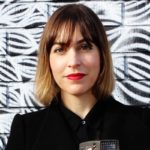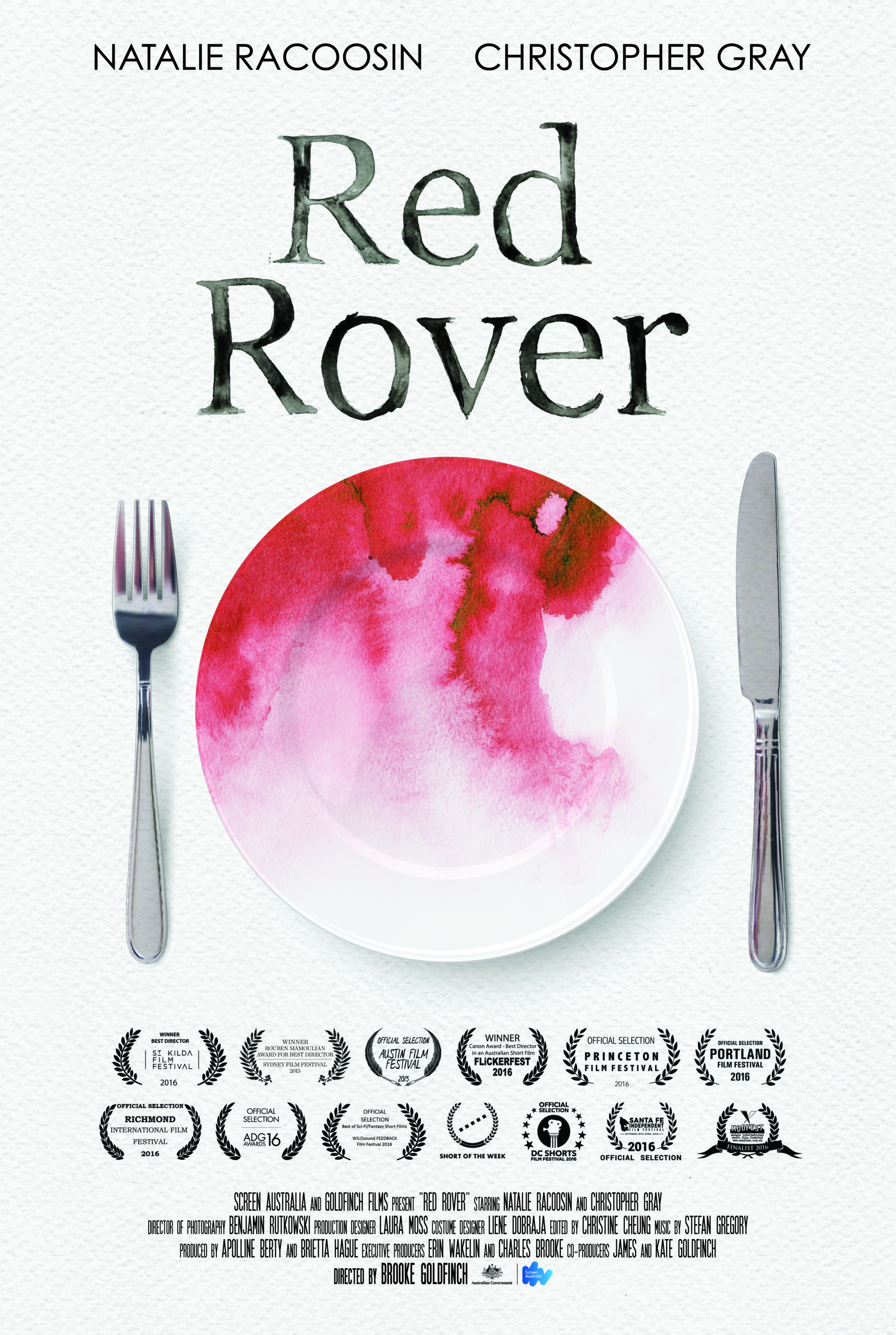
Brooke Goldfinch
Writer and director Brooke Goldfinch was an ABC news reporter in Sydney when she decided to drop everything and move to New York to pursue her dream of becoming a filmmaker. A scholarship student in NYU’s prestigious graduate film program at Tisch School of the Arts, she was taught by Spike Lee, Todd Solondz and many other notable professors.
Brooke’s narrative short films have screened in festivals around the world, including Edinburgh and Rome. Brooke received a Screen Australia Talent Escalator Grant for her short film ‘Red Rover’, which earned her Best Director awards at the 2015 Sydney Film Festival, Flickerfest and St Kilda, as well as AWGIE and ADG nominations. She was selected by actor James Franco to write and direct a segment of the compendium feature film ‘The Color of Time’, starring James, Jessica Chastain, Mila Kunis and Henry Hopper. She was also mentored by Ridley Scott. Working as his Director’s Attachment on ‘Alien: Covenant’. Brooke shot and directed a protest scene for Spike Lee’s 2015 film ‘Chi-Raq’. Brooke’s most recent short Outbreak Generation was the result of her receiving the 2016 Lexus Australia Short Film Fellowship, with the film premiering at the 2017 Sydney Film Festival.
Q & A
If the world you created in your film became a reality, is that a world you would want to live in? Is there a Sci-Fi world you’d buy a one-way ticket to?
I don’t want to give away too much about my film but for a very obvious reason, I wouldn’t want to live in the world of Red Rover. In fact, what happens in the story represents one of my greatest fears! However, I do think the way the two young protagonists respond to the crisis is quite beautiful. They refuse to accept reality, dreaming their way into a hopeful future. This is perhaps something only teenagers would be able to do. Being an adolescent can often make you incredibly sage, but at the same time you’re extremely na ve. Perhaps this special wisdom is a by-product of not having discovered what the world is actually like?
Name a Sci-Fi character you relate to on a spiritual level? Who is your Sci-Fi spirit animal/spirit alien?
I do sort of love Sarah Conner. In Terminator, she’s just a basic, California gal with a waitressing job but by Terminator 2 she’s such a bad bitch. What’s not to love? That journey from helpless damsel to misunderstood hero is imbued with great pathos. You get a sense that she’s still mourning the boring life she was supposed to lead. Sarah is a mother who loves her child and is willing to make enormous sacrifices for him. She faces ridicule, imprisonment and danger and in return, he rejects and resents her. It’s heartbreaking.
Friend or Foe: humanoid robots with advanced artificial intelligence? What if robots start making their own Sci-Fi films? Will you support them in their endeavors?
I’d have to know a lot more information to answer this question. Who are the robots? Who created them? Who owns them? Are they capable of independent thought or are they owned and controlled by vested interests? I think we’ve proven time and time again that as a species humans are easily manipulated, so I would be skeptical of robot directors for this reason.
In 1996, Bugs Bunny recruited Michael Jordan and Bill Murray to form the greatest basketball squad of all-time, the Tune Squad; you’re Bugs, who’s on your Sci-Fi Tune Squad?
I’m extremely uncoordinated and don’t take sports too seriously so maybe I’d get all the duds onboard my team for a laugh, like Elmer Fudd and Wile E Coyote.
You’ve gotta go through some bad ideas to get to the good ones. Tell us one of your bad ideas. How do you get past the bad ones to find your spark?
I’m a firm believer that a bad idea might just be a good idea that you haven’t fully developed yet. Sometimes you have a thought that seems like a really stinky idea but there’s something to it. A kernel of something interesting. I like to stay open and really interrogate the thought. I am currently developing a thriller TV series at the moment. The concept started as a comedy, but it didn’t feel right. As soon as I realized that it had potential to be really dark and scary, everything clicked into place.
Do you consider yourself part of a sci-fi community? Or when your brain is in the future and your body’s in the present, is that isolating?
I see myself more as a dramatic writer but I love how genre can be used to explore really extreme situations. It allows writers to interrogate existential questions within the framework of an exciting narrative. A good sci fi, whilst looking to the future, always reflects on the existing world and makes comment about the times we live in. The Covid-19 pandemic has presented an interesting challenge for writers. Writing anything during this strange period feels like writing sci fi because you have to make guesses about the future. For instance, will we be wearing masks when this project is first seen by an audience? What long-term impact is the pandemic going to have on our culture? Will it change our manners and conventions? You have to ask yourself with every scene, will this make sense in a pandemic/post-pandemic context?
Do you consider yourself more of an analog or digital person? What kind of balance do strike between the two? Is there a disconnect between the technology you make films about and the technology that you make films with?
Analogue. I had the great fortune of being Ridley Scott’s Director’s Attachment on ‘Alien: Covenant’. The role of Director’s Attachment basically means I got to follow Ridley around set for two weeks. Apart from accidentally following him to the bathroom once, the experience was amazing. One thing that struck me right away was that he built these amazing sets and only used Green Screen sparingly, when it was absolutely necessary. That’s why his films look and feel so real. I think having objects in front of you and a world that you can touch, helps with performance and makes the design more thoughtful and considered. The designers have to think about how the characters would actually move around in the space. When you’re on a real set, you have to ask yourself ‘what is this for’,’ what does it do’, ‘who uses it’? The set itself takes on a life of its own, creating an even deeper and more complex world. And don’t get me started on the inbuilt lighting setups. Oof! They were a thing of beauty!
When you’re creating the props and sets that make a new world, where do you look for inspiration? How do you create objects that are relatable but unfamiliar?
Sets tell us so much about each character and the world they live in. They speak to what a character likes, what’s important to them, whether they are rich or poor, fashionable, or materialistic. Props and costume extend the story that has been written down and brings it to life. You get so many insights that aren’t in the script. That’s why a good production designer is so valuable and why it’s important that you have a good script and detailed support materials like a look book, which illustrate how you want to tell the story.
Lightning round: Star Wars or Star Trek? Philip K. Dick or William S. Burroughs? Practical or CGI? Dystopia or Utopia? Post Apocalypse or Pre Apocalypse?
Gosh these are all so hard! Except for Practical vs CGI, that’s easy. ALWAYS PRACTICAL! Also, I like Utopia, obviously, but I think dystopia is more interesting and believable because humans are fallible, and we make mischief in all the worlds we inhabit.


